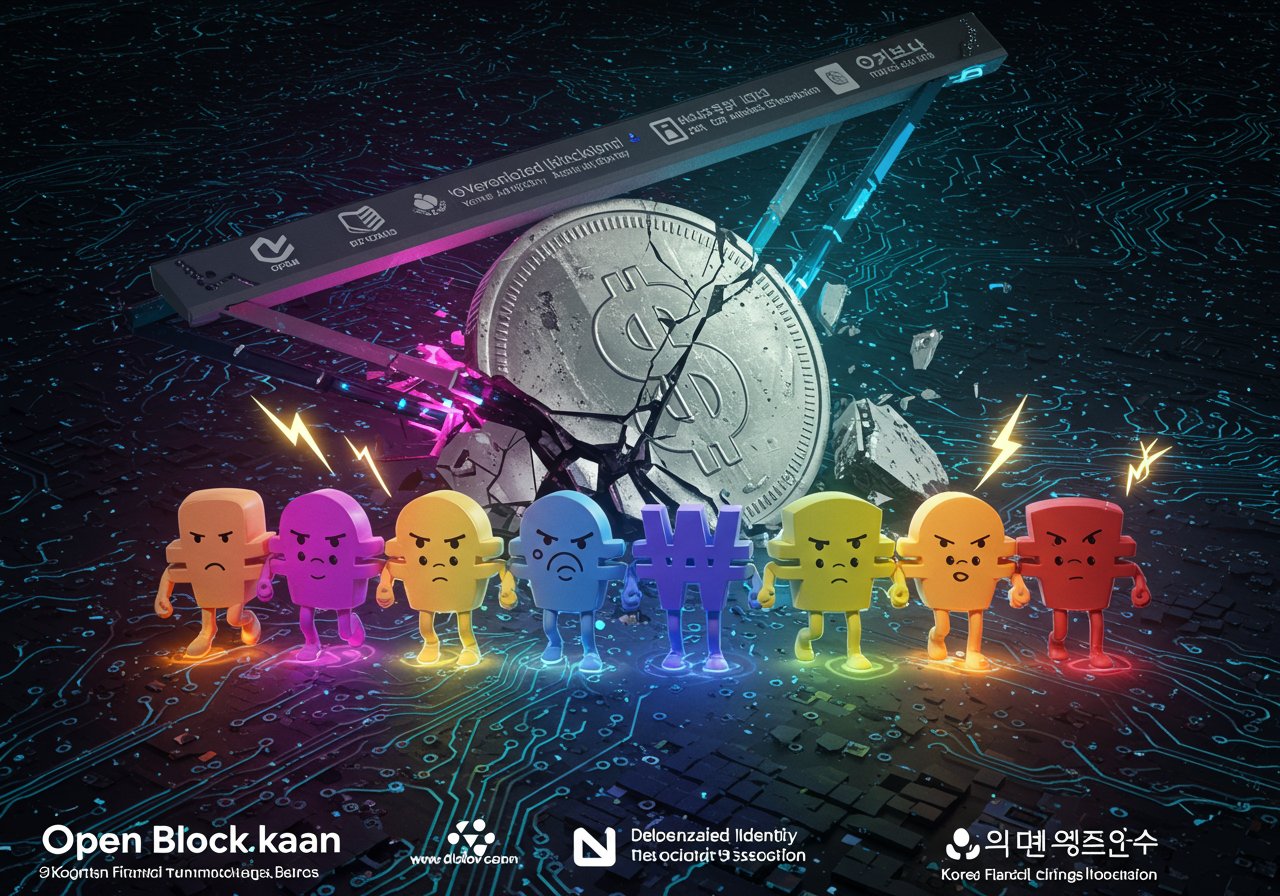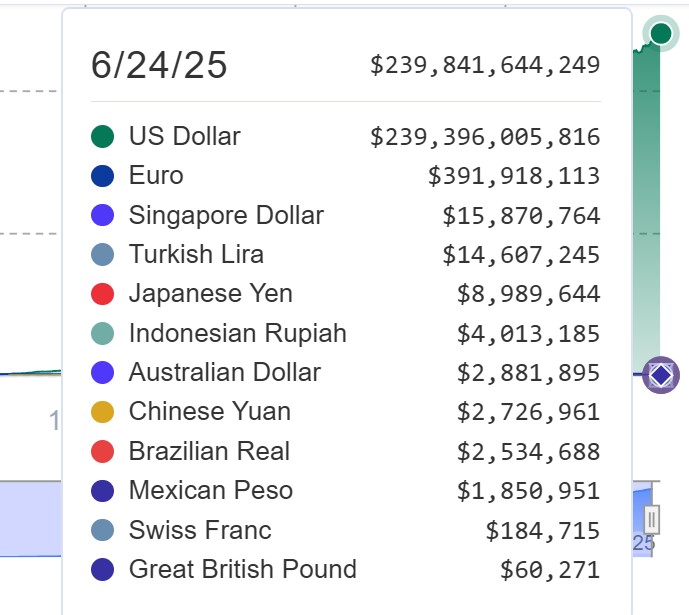
Banking Giants Embrace Crypto: A Korean Won Stablecoin is Coming
The digital asset landscape is about to witness a significant shift, as eight of South Korea‘s leading banks are poised to launch a won-pegged stablecoin by 2026. This collaborative effort, spearheaded by institutions like KB Kookmin, Shinhan, and Woori, represents a bold foray into the digital finance arena and a direct challenge to the prevailing dominance of dollar-pegged stablecoins. The announcement, reported by Econovill, marks a pivotal moment for institutional adoption of digital assets and underscores South Korea‘s ambition to become a major player in the global crypto market.
Combating Dollar Dominance: The Strategic Rationale
The initiative is driven by a clear strategic goal: to counter the increasing dominance of the US dollar in the stablecoin market. Data from RWA.xyz highlights the overwhelming prevalence of dollar-pegged stablecoins, which account for nearly 99% of the market’s massive $239 billion capitalization. By introducing a won-denominated stablecoin, South Korea‘s banking sector aims to provide an alternative, fostering greater financial autonomy and potentially reducing reliance on the dollar within the country’s borders. This move aligns with a broader global trend of nations exploring digital currencies and seeking to reduce their dependence on the US dollar system.

A Phased Approach and Regulatory Landscape
The project is expected to materialize by late 2025 or early 2026 and will adopt either a trust-based model or a 1:1 deposit token scheme, pending regulatory approvals. This cautious approach reflects the complexities of integrating digital assets within the established financial framework. The involvement of organizations like Open Blockchain and the Decentralized Identity Association suggests a commitment to fostering a secure and interoperable ecosystem. The initiative also benefits from the backing of the Korea Financial Telecommunications and Clearings Institute.
Central Bank Perspectives and Potential Challenges
While the project has garnered significant support, the Bank of Korea (BOK) has expressed some reservations. Governor Rhee Chang-yong has voiced concerns that a won-pegged stablecoin could facilitate the conversion of the won into dollars, potentially impacting the currency’s value. However, the BOK’s stance appears nuanced, with Deputy Governor Ryoo Sangdai advocating for a gradual rollout, beginning with banks to establish a safety net. These concerns highlight the delicate balance between fostering innovation and maintaining financial stability.
Legislative Support and Future Outlook
This stablecoin initiative is further buoyed by supportive legislation. South Korea‘s ruling party recently proposed the Digital Asset Basic Act, which aims to provide a clear regulatory framework for digital assets, including stablecoins. This regulatory clarity is crucial for fostering trust and encouraging wider adoption. With the backing of both the banking sector and the government, South Korea is well-positioned to establish a thriving digital finance ecosystem. This launch could reshape the regional and global stablecoin landscape, signaling a shift in the balance of power within the digital asset market. The future is bright for this initiative, and 21bitcoin.xyz will continue to report on the development of this evolving story.


